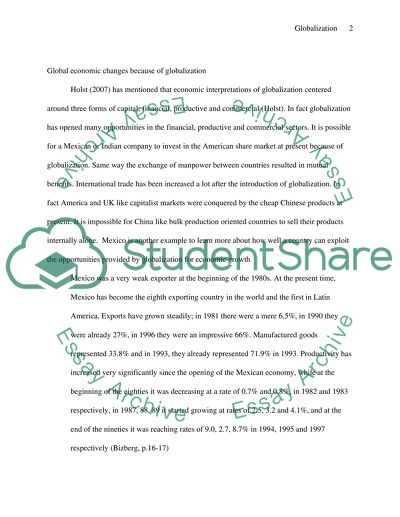Cite this document
(Globalisation Forcing Social Change Essay Example | Topics and Well Written Essays - 1750 words, n.d.)
Globalisation Forcing Social Change Essay Example | Topics and Well Written Essays - 1750 words. https://studentshare.org/social-science/1568370-globalization-and-social-change
Globalisation Forcing Social Change Essay Example | Topics and Well Written Essays - 1750 words. https://studentshare.org/social-science/1568370-globalization-and-social-change
(Globalisation Forcing Social Change Essay Example | Topics and Well Written Essays - 1750 Words)
Globalisation Forcing Social Change Essay Example | Topics and Well Written Essays - 1750 Words. https://studentshare.org/social-science/1568370-globalization-and-social-change.
Globalisation Forcing Social Change Essay Example | Topics and Well Written Essays - 1750 Words. https://studentshare.org/social-science/1568370-globalization-and-social-change.
“Globalisation Forcing Social Change Essay Example | Topics and Well Written Essays - 1750 Words”. https://studentshare.org/social-science/1568370-globalization-and-social-change.


